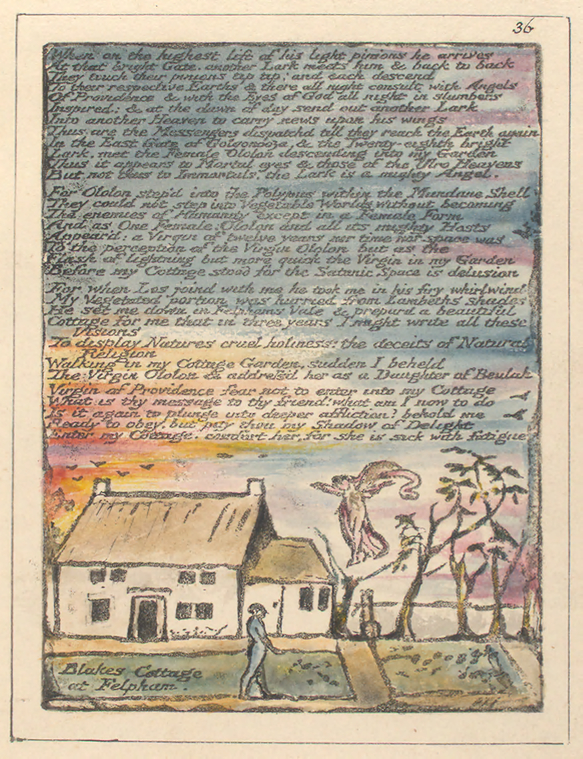[1] And Saul, yet breathing out threatenings and slaughter against the disciples of the Lord, went unto the high priest,
[2] And desired of him letters to Damascus to the synagogues, that if he found any of this way, whether they were men or women, he might bring them bound unto Jerusalem.
[3] And as he journeyed, he came near Damascus: and suddenly there shined round about him a light from heaven:
[4] And he fell to the earth, and heard a voice saying unto him, Saul, Saul, why persecutest thou me?
[5] And he said, Who art thou, Lord? And the Lord said, I am Jesus whom thou persecutest: it is hard for thee to kick against the pricks.
[6] And he trembling and astonished said, Lord, what wilt thou have me to do? And the Lord said unto him, Arise, and go into the city, and it shall be told thee what thou must do.
[7] And the men which journeyed with him stood speechless, hearing a voice, but seeing no man.
[8] And Saul arose from the earth; and when his eyes were opened, he saw no man: but they led him by the hand, and brought him into Damascus.
Jerusalem, Plate 75, (E 231)
"But Jesus breaking thro' the Central Zones of Death & Hell
Opens Eternity in Time & Space; triumphant in Mercy
Thus are the Heavens formd by Los within the Mundane Shell
And where Luther ends Adam begins again in Eternal Circle
To awake the Prisoners of Death; to bring Albion again
With Luvah into light eternal, in his eternal day." 1ST Corinthians 15 [4] And that he was buried, and that he rose again the third day according to the scriptures:
[5] And that he was seen of Cephas, then of the twelve:
[6] After that, he was seen of above five hundred brethren at once; of whom the greater part remain unto this present, but some are fallen asleep.
[7] After that, he was seen of James; then of all the apostles.
[8] And last of all he was seen of me also, as of one born out of due time.
[9] For I am the least of the apostles, that am not meet to be called an apostle, because I persecuted the church of God.
[10] But by the grace of God I am what I am: and his grace which was bestowed upon me was not in vain; but I laboured more abundantly than they all: yet not I, but the grace of God which was with me.
Philippians 3
[20] For our conversation is in heaven; from whence also we look for the Saviour, the Lord Jesus Christ:
[21] Who shall change our vile body, that it may be fashioned like unto his glorious body, according to the working whereby he is able even to subdue all things unto himself.
In the following two letters Blake gives us an inkling of the process he underwent as he experienced a transition to living in the light of spiritual consciousness.
Letters, To Butts, Nov 1802, (E 720)
"And now let me finish with assuring you that Tho I have been
very unhappy I am so no longer I am again Emerged into the light
of Day I still & shall to Eternity Embrace Christianity and Adore
him who is the Express image of God but I have traveld thro
Perils & Darkness not unlike a Champion I have Conquerd and shall
still Go on Conquering Nothing can withstand the fury of my
Course among the Stars of God & in the Abysses of the Accuser My
Enthusiasm is still what it was only Enlarged and confirmd" Letters, To Hayley, Oct 1804, (E 756) "I have entirely reduced that spectrous Fiend to his station, whose annoyance has been the ruin of my labours for the last passed twenty years of my life. He is the enemy of conjugal love and is the Jupiter of the Greeks, an iron-hearted tyrant, the ruiner of ancient Greece. I speak with perfect confidence and certainty of the fact which has passed upon me. Nebuchadnezzar had seven times passed over him; I have had twenty; thank God I was not altogether a beast as he was; but I was a slave bound in a mill among beasts and devils; these beasts and these devils are now, together with myself, become children of light and liberty, and my feet and my wife's feet arefree from fetters. O lovely Felpham, parent of Immortal
Friendship, to thee I am eternally indebted for my three years'
rest from perturbation and the strength I now enjoy. Suddenly,
on the day after visiting the Truchsessian Gallery of pictures, I
was again enlightened with the light I enjoyed in my youth, and
which has for exactly twenty years been closed from me as by a
door and by window-shutters."
.png)




